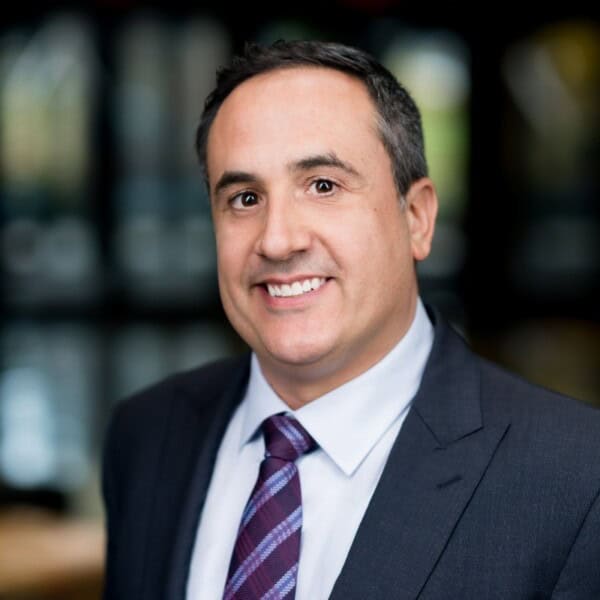Wealthtender is a trusted, independent financial directory and educational resource governed by our strict Editorial Policy, Integrity Standards, and Terms of Use. While we receive compensation from featured professionals (a natural conflict of interest), we always operate with integrity and transparency to earn your trust. Wealthtender is not a client of these providers. ➡️ Find a Local Advisor | 🎯 Find a Specialist Advisor

In today’s world, mastering your personal finances is a huge part of achieving your dreams. Yet most of us don’t learn this skill in school and are left to figure out our finances through our own life experiences and searching for useful resources.
Fortunately, a growing field of financial professionals who call themselves financial coaches are here to help.
Much like a sports coach, a financial coach (sometimes referred to as a money coach) works with you to increase your money skills and master them to win your own financial game.
In this article, we answer common questions about financial coaching and offer useful insights to help you decide if you should hire a financial coach and how to find the best coach for your individual needs.
What is a Financial Coach?
A financial coach is a financial professional who focuses on your day-to-day money habits like budgeting, debt and saving to help you identify which habits need to change in order to reach your bigger goals, then supports you as your work toward that change.
How Does Financial Coaching Work?
Most people who work with a financial coach are looking for someone to take a look at how they have been spending their money, then helping them make decisions on what might need to change. Next they’ll work with you over subsequent sessions to see what works and doesn’t work so that you can work toward your bigger goals like paying off debt and/or saving for future goals.
This usually takes several sessions and the work is typically spread out over many months, sometimes up to a year. How often you meet will depend on your needs and the coach’s specific process. Many coaches offer additional sessions on an as-needed basis once you’ve completed your package, so you can sign up when you need a boost or check-in.
Most financial coaches work with clients virtually using Zoom or Google Meet – if you desire in-person coaching, you’ll probably have to pay slightly more. Many financial coaches also offer unlimited email support throughout the time you’re working together.
Typical Questions a Financial Coach Will Help You Answer
How Do I Create and Manage a Budget?
This is a baseline expectation of a financial coach. Some will provide their own budgeting methods and templates, while others will work with you to find a system that works best for you based on your money personality.
The overall goal of coaching is to make you self-sufficient, so don’t be surprised if your coach expects you to complete your own budget worksheets and assignments.
Coaches know that if they do this work for you, once your work together is done you’re much more likely to return to your old ways without any long-term improvement to your finances.
What’s the Best Way for Me to Pay Off My Debt?
This question is what often leads people to seek a financial coach in the first place – a financial coach will help you set up a debt pay-off plan, which will include examining your budget and most likely making changes to your spending to accelerate your debt pay-off.
A coach should be able to tell you when you can expect to be debt-free if you stick to the plan you create together, along with offering you suggestions, support and insights along the way.
Am I on Track to Achieve my Financial Goals?
Even if you don’t specifically seek help with debt pay-off, a financial coach can help you crunch numbers toward other savings goals then make a plan to get there. Where they’ll really add value is by showing you how certain changes to your financial behavior will get you to your goals faster.
What if I Don’t Even Know What My Financial Goals are?
A coach will help you identify them!
How Can I Find Extra Money to Put Toward My Financial Goals?
This really comes back to the budgeting step. A financial coach will work with you on your spending habits to find ways that fit your lifestyle to update how you spend and save money to better align with your goals.
Why Do I Have Trouble Sticking to the Spending Limits I Set for Myself?
The psychological aspect of your money is really important to address in financial coaching for most people. A financial coach can provide you with exercises to give insights into your money mindset so that together you can discover ways to shift toward the mindset you want in order to meet your financial goals.
I Just Need Someone to Hold Me Accountable to the Goals I Set for Myself.
Accountability is one of the best benefits of financial coaching! Just like a sports coach holds you accountable to showing up for practice, which inevitably improves your performance, a financial coach is there to keep you showing up for your money habit changes, reminding you why you’re making the change in the first place, and encouraging you when you fall off track.
🙋♂️ Have Questions About Financial Coaching?
Other Financial Coaching Services
Your financial coach may be able to offer additional services based upon their credentials or areas of specialty. For example, you might consider hiring a financial coach who can help you:
- Figure out if you can afford to start a business or switch careers
- Help you make the most of your employee benefits
- Decide which type of account to use for different goals
- Develop a plan to save for future education expenses
- Improve your finances with your spouse with marriage financial coaching
- Educate you on how your retirement plan (401k, 403b, etc.) works and how to make the most of it
- Whether or not you need life insurance and how much
How is a Financial Advisor Different from a Financial Coach?
Many financial advisors these days are incorporating aspects of financial coaching into their business, but the big difference between a financial advisor and a financial coach is that a financial advisor primarily serves as someone who provides investing advice.
This means you typically need a certain amount of money to invest in order to work with them, and they are often paid based on the amount you invest with them.
What Can a Financial Advisor Help With that Most Financial Coaches Cannot?
- Choosing specific funds to invest in
- How to invest to reach your goals
- What type of insurance policy is best for what you need
- Any advice around investing that goes beyond educating you
What Training or Qualifications does a Financial Coach Need?
The truth is there are no legal requirements in order for someone to call themselves a financial coach – many financial coaches are simply everyday people who found success in their own money habits and wish to share their wisdom and knowledge with others.
There are, however, formal training programs out there, and several financial credentials that you may wish to seek. Here are a few of the more popular ones and what they mean:
AFC® (Accredited Financial Counselor®)
- To earn this credential, a coach must meet certain educational requirements and pass an exam certifying their knowledge on various financial principles applicable to financial coaching.
- Coaches with these certifications must also meet annual continuing education requirements in order to ensure that they stay current with personal finance laws and trends.
CFP (CERTIFIED FINANCIAL PLANNER)
- A Certified Financial Planner (CFP) is someone who has also completed certain educational requirements and passed a vigorous exam.
- Coaches who hold their CFP license have demonstrated knowledge in all areas of financial planning, including:
- Cash flow (budgeting, debt reduction, etc – typically the focus of financial coaching)
- Retirement
- Protection (aka insurance)
- Investment planning
- Estate planning
- Tax planning
- CFP professionals are held to a very high standard by their governing board and many are subject to additional state and federal laws. This means that in order to sign on as a financial coaching client, you may have to sign a more robust client agreement – this shouldn’t scare you away, but rather just explain why there may be a little more “red tape” getting started.
- Coaches who are CFP® professionals must also complete a minimum amount of continuing education each year, including ethics, in order to maintain their license.
Find a CFP®Professional on Wealthtender
📍 Click on a pin in the map view below for a preview of Certified Financial Planners who can help you reach your money goals with a personalized plan. Or choose the grid view to search our directory of financial planners with additional filtering options.
📍Double-click or pinch pins to view more.
CPA/PFS (Certified Public Accountant / Personal Financial Specialist)
A financial coach with the CPA/PFS designation has passed the most rigorous exam out there (pretty much as hard as the Bar exam for lawyers) and also has a college degree.
- Coaches who hold a CPA license are able to sit for the CFP without any additional educational requirements, meaning that the knowledge base required to be a CPA is sufficient to become a CFP professional.
- One thing that a CPA/PFS may be able to do for you that other coaching designations may not is tax planning and preparation.
- This would most likely require a separate agreement and/or fee, but if you’re looking for a two-for-one, you may find it with a CPA/PFS.
- CPAs are required to earn an average of 40 hours of continuing professional education each year, making this the most robust education requirement.
How Do I Choose a Financial Coach Based Upon their Credentials?
It will depend on your needs, but if you are simply seeking financial coaching, then any of the above credentials can provide you with additional confidence that the coach has demonstrated the knowledge necessary to provide coaching services.
But the most important criteria will be whether or not you connect with your coach – do you feel this is someone that you can trust? Does he/she “get” you? Do you feel confident that they will be able to fulfill the promises that they are making about your work together? Don’t be afraid to ask as many questions as you need to feel comfortable that this person is the best fit for you.
The good news is that financial coaching is a rapidly growing profession, so if the first coach you talk with doesn’t feel like a good fit, know that there are plenty of others out there to consider.
The right financial coach can help you transform your personal relationship with money, but the most important thing about engaging with one is that YOU are ready to do the work.
How Much Does Financial Coaching Cost?
Unlike a financial advisor who will typically require you to open an investment account and then charge you a fee either based on the balance in your account or per financial transaction, a financial coach does not require you to have any money to invest in order to get started. Some coaches also offer investment advisory services, so one thing you’ll want to know right away is how your coach is paid.
Most financial coaches are paid either by the hour or by the session – many offer packages or an ongoing retainer rate to encourage an ongoing relationship.
What you need from your coach will help determine what type of pricing model is best for you. For example, if you’re simply looking for answers to questions and some validation of the things you’re already doing, then a one-time fee could work for you.
Many fee-based financial planners offer this type of service, while most financial coaches work more with people who are looking for support in changing financial habits and learning about the basics of money.
How do I Find a Financial Coach?
The Wealthtender Financial Coach Directory can help you find the best financial coach for your individual needs and based on what’s most important to you.
You’ll be able to choose from a diverse group of financial coaches who offer their unique perspectives and life experiences to help clients improve their financial well-being.
We encourage you to interview multiple financial coaches to ensure both you and the coach you decide to hire a good fit for each other. Most coaches offer an initial introductory call for this purpose, and may even require it before getting started.
About the Author

About the Author
Brian is CEO and founder of Wealthtender. He and his wife live in Texas, enjoying the diversity of Houston and the vibrancy of Austin.
With over 25 years in the financial services industry, Brian is applying his experience and passion at Wealthtender to help more people enjoy life with less money stress.
Wealthtender is a trusted, independent financial directory and educational resource governed by our strict Editorial Policy, Integrity Standards, and Terms of Use. While we receive compensation from featured professionals (a natural conflict of interest), we always operate with integrity and transparency to earn your trust. Wealthtender is not a client of these providers. ➡️ Find a Local Advisor | 🎯 Find a Specialist Advisor



































